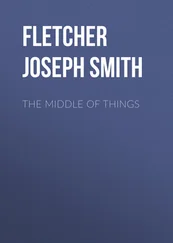OLD GABRIEL WAS THINKING OF JOSÉ’S WEDDING and of how Moisés had pulled his brother by the little finger, almost pulling it off, so that he could get closer to the cook at the altar.
MOISÉS GOT CLOSER AND CLOSER TO THE COOK, defying the laws of observation, for it seemed that the closer he got, the better he could look at her and size her up. As if, leaning his shoulder into her and twisting his neck in a bundle of tendons and thick veins to look at her from within one inch of her ear, almost burying his nose in her hair, he could better appreciate her; as if his shoulders were eyes that saw; as if two eyes focused on a fuzzy, badly defined ear were the same thing as seeing a woman at a distance, seeing her walk and seeing her pass by us and draw away while we think about her, which is also a way of seeing her. And he solemnly continued, with twisted neck, to focus on that ear that wasn’t even very pretty, or very feminine, or well shaped. And the farther he pulled away from his brother, the more one could see how complicated were the jackets they wore. On the inside of the sleeve common to both and in the waist area beneath that sleeve there was a row of laces with wide bows and concealed buttons. Except for that, they looked like elegant jackets. Stately blue in color, they were furnished, in front and on the cuffs, with thick, anchor-embossed buttons of imitation gold. They were made of good cloth, and whitish stains marked the place of the shoulder blades. Moisés got closer to the cook and pulled his brother with him. Pulled him like a dead weight by jerks that he pretended not to notice, Elias seeming concentrated on the wedding and on the devil’s smile and on the madwoman from the Rua da Palha and on the saints with faded written notes from remote civilizations stuck with safety pins to their moth-eaten gowns. The bride and groom, cut by the horizontal line of the two brothers’ outstretched arms, stood with their backs to the nave, while the broadly smiling devil faced it. He read from a book and smiled. He wore an old chasuble and smiled. At a certain point he held the book in front of them and said they should kiss it. They didn’t kiss it. José’s sister’s kid was screaming and, by this time, was screaming inside our heads. An echo inside an echo of a voice inside a voice inside our heads. And we hardly heard, or we didn’t hear at all, the long question asked by the quietly smiling devil, but the silent question hovered, suspended, in the devil’s inquisitive and suspended gaze. José said yes. His wife nodded her head. When the witnesses were asked for their signatures, Moisés was surprised to see the cook pull away and walk off; perhaps he thought she was a statue that sniffled and blew its nose. The kid kept screaming. Outside José’s sister, with a bunch of plastic flowers on her head, talked with the profusion of a cartload of oats being dumped into an empty storehouse: grains on top of grains in the air, without letup, words on top of words, like an open faucet of oats or of words, one grain after another and before it, one word beginning in the middle of the previous word and that one finishing and the next one only half said when another one begins, and so on. The devil smiled all alone. The madwoman from the Rua da Palha stood in a corner of the churchyard, amid the dust and stones. The churchyard was all dust and stones, as every street in town was dust and stones, and amid the dust and stones she stood and, separating her legs, began to urinate, the faint whistle of her bladder and the foamy puddle of urine. José’s father was like an ancient tree, withered or almost dead, whose sap ran deep and slow. The newlyweds took their leave, and no one congratulated them or had anything to say to them. They took their leave and disappeared with little more than a few murmurs. Without the bride and groom, we suddenly realized there was no reason for us to be gathered there. The blacksmith took the strip of cloth from his pocket, tied it around José’s father’s neck, and left with his wife and baby. Through the streets of the town they carried the kid’s screams, which diminished, though on certain curves they could still be heard loudly, and sometimes a stray wind or a memory would bring them back from afar. And the cook left. And Moisés tried to talk his brother into following behind her. They followed. It was midday. The madwoman from the Rua da Palha, left all by herself, wandered about the churchyard.
THE EVENING FELL LIKE A SCREEN IN THE SKY over the oil press. The three old men maintained their silence.
THROUGHOUT THE REST OF the summer, the brothers often passed by the cook’s house. When it was already late, after nightfall in August, they would sit on the stone bench outside the house of the man who writes in a room without windows and remain there all evening. At the beginning of the street, there was a nook with a fountain, and from there to the end of the street all the doors were open, and the people who lived there sat in the doorways. The man who writes in a room without windows was the only exception, he never came out, and so Moisés took advantage. Night after night, for a whole week, he had to convince his brother to go there, but then it became a habit and there was no more need to convince him. Moisés talked loudly with the migrant who lived opposite the cook and sometimes talked with her, softly. It so happened that Elias sat on the side of the cook, which meant that Moisés and the cook had to talk either in front of him or behind him. No one said anything to Elias. Elias said nothing to anyone. And the warm night, the cook’s dull chatter about pennyroyal and purslane, the stars, the cool trickle of water falling into the shallow pool of the fountain, all made Elias fall asleep. And he only woke up when someone passed by on the street. He woke up with a zigzag of good evenings: good evening here, good evening there, good evening here, good evening there. Moisés didn’t fall asleep, and even in bed the thought of the cook kept him from sleeping. In September the days began to get shorter and a bit cool, and the brothers were the last to quit the ever-cooler evening coolness and the stone bench of the house of the man who writes in a room without windows.
The sun of late September was almost as hot as the sun of August, but the season for sitting in the doorway at night had passed, and Moisés and the cook stopped seeing each other. But Moisés was the kind of man who won’t give up, and one day he thought: it has to be. The next day he again thought: it has to be. The day after that he again thought: it has to be. And two weeks later he contrived to meet the cook at the door to the grocer’s. They got married on a Saturday, the date of which they forgot. Since the cook’s house was larger, it was the two brothers who moved. They loaded three wagons with chests and junk. They rented out their place for not very much money, but it helped pay expenses.
The brothers weren’t big spenders. They had the clothes they needed, and what they earned from the oil press was enough for them to eat platefuls of boiled potatoes with collard greens and lots of olive oil for lunch and dinner. The cook, who for all her adult life was used to tasting the rich people’s food at the Mount of Olives, wouldn’t settle for collard greens. If at first she made collard greens and potatoes in all the ways collard greens and potatoes can be made, soon she used her expertise to obtain new ingredients. In the first weeks she made boiled potatoes with collard greens; the brothers sat at the table and ate up. Then she started making pies and empanadas out of potatoes and collard greens; the brothers sat at the table and ate up. After a month had gone by she made sculptures out of potatoes and collard greens that sighed like women in love and seemed to blow thick-lipped kisses from the collard leaves, green lips dripping olive oil from the corner of the mouth; Elias, somewhat warily, and Moisés, eagerly, sat at the table and ate up. One night for dinner the cook placed, in the middle of the table, a platter with shapely, wide-open potato legs and an open, steaming vagina made of collard greens which, by a trick of her culinary art, slowly contracted before the brothers’ eyes, contracting until it became a collard-green vagina that was irrevocably closed and dried up, with just a trickle of olive oil; Elias, feeling perplexed, and Moisés, perturbed, sat down and ate. Moisés and the cook looked at each other in a silent understanding, and the next morning he ordered turnip greens and onions from old Gabriel. On Sunday morning the brothers set traps for the sparrows on Gallows Tree Hill. Some days later Moisés bought two packages of noodles; then he picked out some good mushrooms; then he bought half a pound of shark’s meat; then he went acorn picking; then he planted garlic and cabbages in the backyard; then he grew parsley and coriander in a tub; then he raised rabbits and hens in a chicken coop he built out of crates; then he bought three sardines; and then he bought some fruit. The rent money from the brothers’ old house began to go entirely toward food.
Читать дальше












